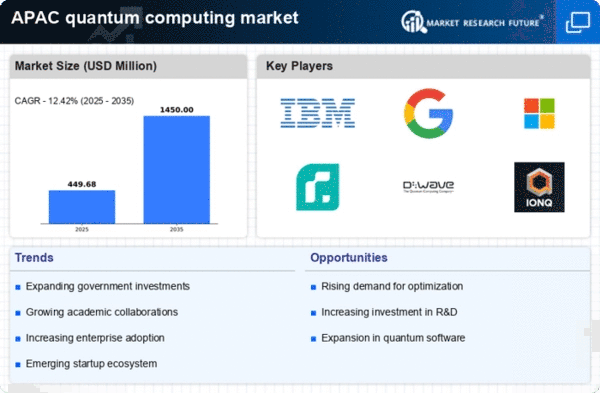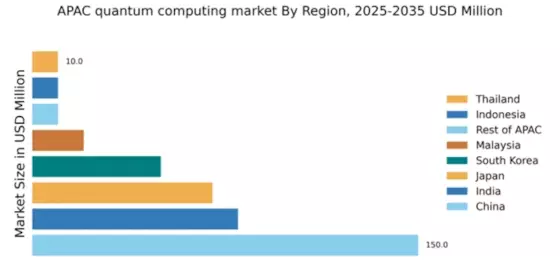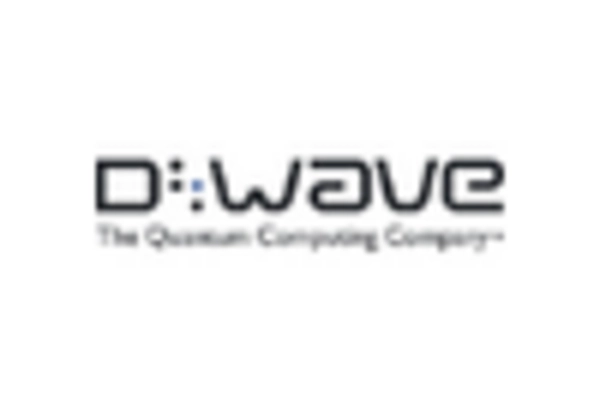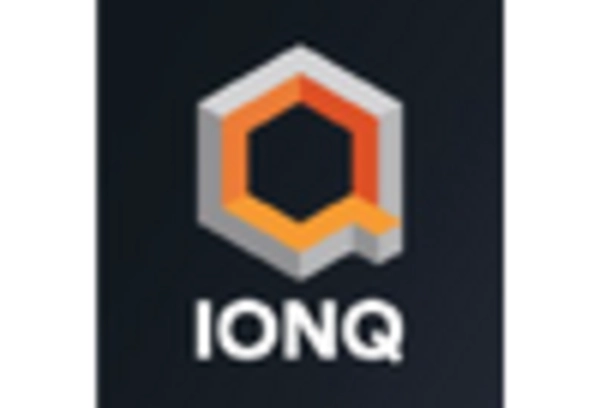China : Robust Growth and Investment Landscape
Key cities such as Beijing, Shanghai, and Shenzhen are pivotal in the quantum computing landscape, hosting major players like Alibaba and IBM. The competitive landscape is characterized by a mix of domestic and international firms, with a strong emphasis on collaboration between academia and industry. Local market dynamics are influenced by a skilled workforce and a vibrant startup ecosystem. Applications in sectors like cryptography, optimization, and drug discovery are gaining traction, positioning China as a leader in quantum technology.
India : Government Support Fuels Innovation
Cities like Bengaluru, Hyderabad, and Pune are emerging as key markets for quantum computing, with a vibrant ecosystem of startups and research institutions. The competitive landscape features players like IBM and local startups, fostering collaboration and innovation. The business environment is characterized by a supportive regulatory framework and increasing investment from both public and private sectors. Applications in sectors like cybersecurity and data analytics are gaining momentum, further driving market growth.
Japan : Strong Research and Development Focus
Tokyo and Osaka are key cities in Japan's quantum landscape, hosting major players like IBM and local firms. The competitive environment is marked by a blend of established corporations and innovative startups, creating a dynamic ecosystem. Local market dynamics are influenced by Japan's technological prowess and a focus on high-quality manufacturing. Applications in sectors such as logistics and supply chain optimization are emerging, positioning Japan as a significant player in the quantum computing arena.
South Korea : Strong Government and Industry Collaboration
Seoul and Daejeon are key markets for quantum computing, with a competitive landscape featuring major players like Samsung and IBM. The business environment is characterized by strong collaboration between government, academia, and industry, fostering innovation. Local market dynamics are influenced by a highly skilled workforce and significant investment in research and development. Applications in sectors like artificial intelligence and cybersecurity are gaining traction, further driving market growth.
Malaysia : Emerging Market with Potential
Kuala Lumpur and Penang are key cities in Malaysia's quantum landscape, with a developing ecosystem of startups and research institutions. The competitive landscape is characterized by a mix of local and international players, fostering collaboration and innovation. The business environment is evolving, with increasing investment from both public and private sectors. Applications in sectors like data analytics and optimization are gaining momentum, positioning Malaysia as a potential player in the quantum computing market.
Thailand : Government Initiatives Drive Growth
Bangkok and Chiang Mai are key markets for quantum computing, with a developing ecosystem of startups and research institutions. The competitive landscape features a mix of local and international players, fostering collaboration and innovation. The business environment is characterized by increasing government support and investment in research and development. Applications in sectors like data analytics and optimization are gaining traction, positioning Thailand as an emerging player in the quantum computing arena.
Indonesia : Potential for Future Growth
Jakarta and Bandung are key cities in Indonesia's quantum landscape, with a developing ecosystem of startups and research institutions. The competitive landscape is characterized by a mix of local and international players, fostering collaboration and innovation. The business environment is evolving, with increasing investment from both public and private sectors. Applications in sectors like data analytics and optimization are gaining momentum, positioning Indonesia as a potential player in the quantum computing market.
Rest of APAC : Emerging Markets with Unique Needs
Countries like Vietnam, Singapore, and the Philippines are key markets in the Rest of APAC, with developing ecosystems of startups and research institutions. The competitive landscape features a mix of local and international players, fostering collaboration and innovation. The business environment is characterized by increasing government support and investment in research and development. Applications in sectors like data analytics and optimization are gaining traction, positioning the Rest of APAC as a region with unique quantum computing opportunities.

















